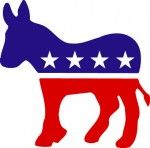What’s Left: Political “Chicken

Last week’s game of political ‘chicken’ between Democrats and Republicans over the federal government’s budget appeared to many to be selfish political posturing by representatives caught in self-interested ideology. Government employees would be furloughed, important services would be shuttered, they said. Newt Gingrich notably called out President Obama for “using our men and women in uniform as bargaining chips in the budget negotiations.”
Now delaying salary for military employees is another issue we can all agree ought to be addressed by a comprehensive law. What is important to remember, however, is that it is no more the fault of one party than the other. Each party drove us to the brink. And what’s more, some good may come of this. As we experience the first real test of ‘divided’ government, we can see that compromise can bring the results that a one-party government can’t.
When the midterm election results came around in November of last year, many people pointed to it as a symbol of Obama’s decreasing influence. But looking back through history, the president’s party has lost seats in one of the houses in every midterm election since 1900 (save one, President Kennedy). So instead of implicating every president in the modern era, we must see this election as a mandate to both parties to work together. A government works best with the conspicuous dissent of others: this creates a free market of ideas with equal opportunity to voice and enact them.
This brings us to the stalemate that we faced on Friday. The Republicans, stalwart in their political convictions and determined to cut more out of the budget, thought they could kill two birds with one stone by trying to halt funding for Planned Parenthood as part of their $60 billion cost-cutting proposal. Democrats felt that a $26 billion increase from last years’ budget (unadjusted for inflation) would be suitable to appease calls for a reduction in the debt. What came out was a $38 billion reduction compromise that wouldn’t touch Planned Parenthood.
This is a significant accomplishment for both ends of the political spectrum. It forces both Democrats and Republicans to give up something they want: Republicans abandon their quixotic proposal to eliminate an essential social service and Democrats bite the bullet on budget reduction. In a way, it’s a small compromise for both – yes, cutting $38 billion out of the budget will be tough and the old guard Republicans will certainly bicker about the merits of sacrificing morality for money but it appeals to the core of each party. Republicans have always been more concerned about the budget and Democrats about social issues anyway. It harkens back to the political deadlock of 1995, from which some of the most important bills (welfare reform, free trade, healthcare for children) were passed. What is important here is that ‘divided’ government has provided a sensible solution that allows both parties to satisfy their bases at an equal cost. There are no winners and losers here, and often that’s the solution that satisfies everyone.




